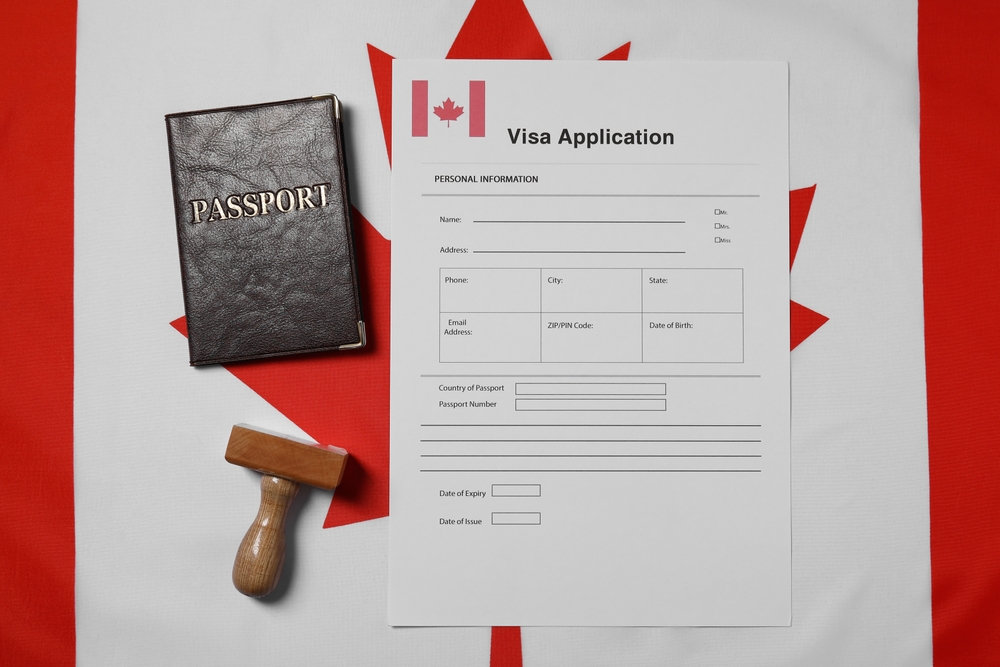Canada has long been a destination of choice for professionals seeking better opportunities, stability, and a high quality of life. With its aging population and growing economy, the country continues to open its doors to foreign talent through the Skilled Worker Visa and Express Entry systems. But not all jobs are created equal—some occupations are in particularly high demand, offering faster immigration processing, better job prospects, and stronger earning potential.
This guide highlights the top 10 high demand jobs in Canada for skilled worker visa applicants and explains how you can align your career path with the NOC jobs list (National Occupation Classification), which determines your eligibility for immigration under Express Entry occupations.
Understanding Skilled Immigration to Canada
The Canadian government uses a point-based system under Express Entry to assess applications for skilled immigration. Points are awarded for age, education, work experience, language proficiency, and more. However, having a job aligned with one of the high demand jobs Canada can significantly boost your chances of receiving an Invitation to Apply (ITA) for permanent residency. The NOC jobs list helps identify occupations that are eligible for Express Entry. The latest version—NOC 2021—categorizes jobs into TEER levels (Training, Education, Experience and Responsibilities), and applicants must fall within TEER 0, 1, 2, or 3 to qualify for Express Entry.
Top 10 High Demand Jobs in Canada for Skilled Worker Visa Applicants
1. Registered Nurses and Healthcare Workers
NOC Code: 31301 (Registered Nurse)
Healthcare remains one of the most in-demand sectors in Canada. Registered nurses, personal support workers, and medical technicians are urgently needed, especially in provinces like Ontario, Alberta, and British Columbia. Internationally trained nurses can benefit from fast-track licensing and provincial nominee programs.
Why it’s in demand: Aging population, hospital shortages, and post-pandemic needs.
2. Software Engineers and Developers
NOC Code: 21231 (Software Engineer), 21230 (Computer Programmer)
Canada’s booming tech industry makes software development one of the top high demand jobs Canada. Cities like Toronto, Vancouver, and Montreal are global tech hubs with a constant appetite for skilled developers.
Why it’s in demand: Digital transformation, startup growth, and immigration-friendly tech visa pathways.
3. Truck Drivers
NOC Code: 73300
The logistics and transport sectors face critical labor shortages, particularly for long-haul truck drivers. Many provinces include trucking in their Express Entry occupations under Provincial Nominee Programs (PNPs).
Why it’s in demand: Supply chain expansion and driver shortages.
4. Electricians
NOC Code: 72200
Canada’s construction boom and infrastructure upgrades are creating a persistent need for certified electricians. Licensed professionals with Red Seal certification are particularly favored.
Why it’s in demand: Infrastructure investment, housing development, and aging workforce.
5. Welders
NOC Code: 72106
Among skilled trades, welding is high on the NOC jobs list. Canadian employers often struggle to find local welders, making this a strong option for skilled workers looking for a permanent future in Canada.
Why it’s in demand: Construction, shipbuilding, and manufacturing demand.
6. Web Designers and Digital Media Specialists
NOC Code: 21233
With e-commerce and online business surging, companies are investing in digital presence like never before. This makes web developers and UX/UI specialists increasingly sought after.
Why it’s in demand: Digital marketing growth and remote work expansion.
7. Early Childhood Educators (ECEs)
NOC Code: 42202
Canada is investing in universal childcare programs, especially in provinces like Quebec and British Columbia. Trained early childhood educators are crucial for this plan’s success.
Why it’s in demand: Government-funded daycare initiatives and school support needs.
8. Mechanical Engineers
NOC Code: 21301
Mechanical engineers are vital across Canada’s energy, automotive, and aerospace industries. Foreign-trained engineers can register with provincial associations to gain licensure and employment.
Why it’s in demand: Industrial growth and skilled retirements.
9. Construction Managers and Project Supervisors
NOC Code: 70010
Real estate, infrastructure projects, and commercial expansion have driven up the demand for experienced construction managers and supervisors. This is a perfect field for professionals with experience in large-scale projects.
Why it’s in demand: Urban expansion and skilled manager shortages.
10. Financial Analysts and Accountants
NOC Code: 11101 (Accountants), 11100 (Financial Analysts)
Every business needs finance experts. With rising complexity in taxes, audits, and regulations, certified accountants and analysts are continually recruited across the country.
Why it’s in demand: Business expansion and evolving regulatory requirements.
How to Align with Express Entry Occupations
To qualify for skilled immigration, your current or most recent job must be on the NOC jobs list and fall under TEER level 0 to 3. Here are a few tips:
- Use the official NOC 2021 website to check your occupation code.
- Update your resume and work experience to match the official job duties listed under your NOC.
- Gather supporting documents like reference letters, education equivalencies, and certifications.
- Consider applying through Provincial Nominee Programs (PNPs), which often prioritize certain high demand jobs Canada.
What Increases Your Chances of Immigration Success?
Even if your occupation is on the NOC list, several factors can further improve your Express Entry ranking:
- Language Proficiency – Achieve high IELTS or CELPIP scores.
- Educational Credential Assessment (ECA) – Ensure your foreign degree is recognized.
- Job Offer – Having a valid Canadian job offer boosts your Comprehensive Ranking Score (CRS).
- Provincial Nomination – Adds 600 points to your Express Entry profile.
- Canadian Experience – Temporary work permits or study permits can lead to PR under Canadian Experience Class (CEC).
Future Trends: Jobs That Will Be in Even Higher Demand
As technology, sustainability, and healthcare evolve, Canada’s future workforce will need even more talent in:
- Artificial Intelligence and Machine Learning
- Renewable Energy Technicians
- Cybersecurity Specialists
- Robotics Engineers
- Home Health Aides
Applicants planning for the long term should consider upskilling into these fast-growing sectors.
Conclusion
Canada continues to be a global leader in welcoming skilled immigrants through efficient and transparent processes. But the key to success lies in aligning your skills with the right high demand jobs in Canada and ensuring your occupation is part of the NOC jobs list under Express Entry occupations.
By choosing a career that Canada urgently needs—such as healthcare, technology, skilled trades, or finance—you can significantly improve your odds of being selected for permanent residency. With the right guidance, documents, and preparation, your journey to a prosperous life in Canada can begin sooner than you think.
Whether you’re a nurse in the Philippines, a software engineer in India, or an electrician in the UAE, Canada is actively looking for professionals like you.
FAQs
Q: What are the top jobs for skilled immigrants in Canada?
Some of the top jobs include registered nurses, software engineers, truck drivers, electricians, welders, and financial analysts—many of which are listed on the NOC jobs list and supported under Express Entry.
Q: Does Canada accept all skilled worker applications?
No. Only candidates who meet eligibility criteria (age, education, work experience, and language ability) and whose occupation is listed under Express Entry occupations or a PNP will be considered.

